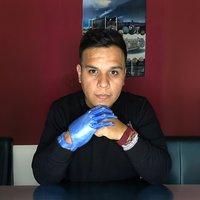Biotechnology & medicine
Akanksha THAWANI
Solving the atomic structures of transposition within the human genome.

Asia Pacific
Jinglei ZHAI
In vitro culture systems that provide a foundation for exploring the regulatory mechanisms of early human embryonic development.

Global
Andee Wallace
She engineers microbes to go after bacteria that harm plants—and hopes to reinvent pesticides.

Latin America
Enzo Romero
Accessible and Personalized Prosthetics

Global
Mireille Kamariza
She cut the detection time of the bacteria that causes tuberculosis to under an hour.
